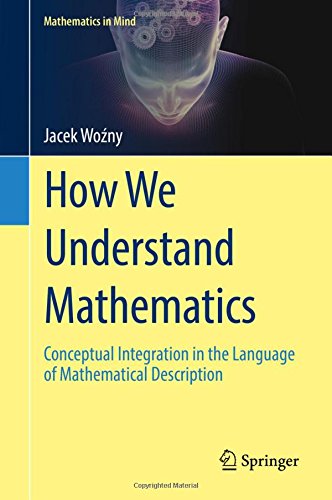

Most ebook files are in PDF format, so you can easily read them using various software such as Foxit Reader or directly on the Google Chrome browser.
Some ebook files are released by publishers in other formats such as .awz, .mobi, .epub, .fb2, etc. You may need to install specific software to read these formats on mobile/PC, such as Calibre.
Please read the tutorial at this link. https://ebooknice.com/page/post?id=faq
We offer FREE conversion to the popular formats you request; however, this may take some time. Therefore, right after payment, please email us, and we will try to provide the service as quickly as possible.
For some exceptional file formats or broken links (if any), please refrain from opening any disputes. Instead, email us first, and we will try to assist within a maximum of 6 hours.
EbookNice Team

Status:
Available4.5
38 reviewsThis volume examines mathematics as a product of the human mind and analyzes the language of "pure mathematics" from various advanced-level sources. Through analysis of the foundational texts of mathematics, it is demonstrated that math is a complex literary creation, containing objects, actors, actions, projection, prediction, planning, explanation, evaluation, roles, image schemas, metonymy, conceptual blending, and, of course, (natural) language. The book follows the narrative of mathematics in a typical order of presentation for a standard university-level algebra course, beginning with analysis of set theory and mappings and continuing along a path of increasing complexity. At each stage, primary concepts, axioms, definitions, and proofs will be examined in an effort to unfold the tell-tale traces of the basic human cognitive patterns of story and conceptual blending.
This book will be of interest to mathematicians, teachers of mathematics, cognitive scientists, cognitive linguists, and anyone interested in the engaging question of how mathematics works and why it works so well.